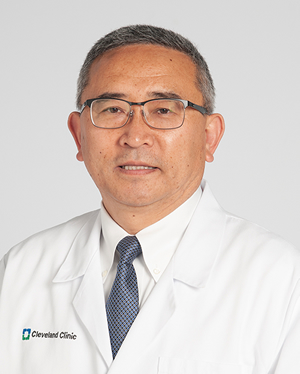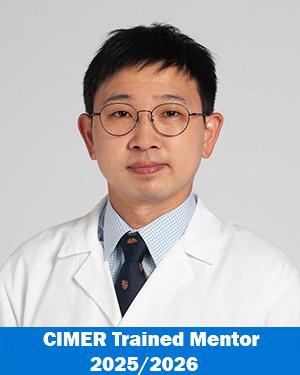Research News
09/15/2022
Cleveland Clinic Receives $2.9 Million for Additional Research on Emerging Tick-borne Virus Pathogen
Dr. Jae Jung will study the natural course of infection and viral reassortment of the emerging pathogen, Severe Fever with Thrombocytopenia Syndrome Virus (SFTSV).

Cleveland Clinic has been awarded a five-year, $2.9 million grant from the National Institute of Allergy and Infectious Diseases (NIAID) at the National Institutes of Health (NIH) to study Severe Fever with Thrombocytopenia Syndrome Virus (SFTSV).
Led by Jae Jung, PhD, Director of Cleveland Clinic's Global Center for Pathogen & Human Health Research, a team will study the natural course of SFTSV infection and tick-borne virus reassortment, which is the process of genetic recombination that is exclusive to segmented ribonucleic acid (RNA) viruses.
SFTSV has been included on a World Health Organization (WHO) list of emerging pathogens most likely to cause a future pandemic. The current fatality rate of SFTSV stands at 12 to 30%, with spread occurring from tick-to-animal/human, human-to-human and animal-to-human contact. Infected Asian longhorned ticks, Haemaphysalis (H.) longicornis, carry the virus, which has been contracted only in Southeast Asia to date.
"We already have a virus similar to SFTSV in the U.S., the heartland virus, which is caused by lonestar ticks. SFTSV itself has not yet been identified in the U.S., but ticks are present, with the first longhorn tick identified in New Jersey in 2018," says Dr. Jung.
In 2020, Dr. Jung pioneered research to develop a vaccine for SFTSV after receiving a $2.8 million grant from the NIAID. His team was able to isolate and sequence 133 different SFTSV strains from 3,000 patients, which helped provide insight into the immunogenicity and protection efficacy in preclinical models. Additionally, in 2021, Dr. Jung used patient samples to discover the possibility of inflammatory biomarkers to help identify patients at the greatest risk for severe disease and death from SFTSV.
Building on his previous work, including a vaccine study that developed a protein nanoparticle vaccine for SFTSV, researchers will now aim to identify the phenotypic changes in the fitness, transmissibility, antigenicity and pathogenicity into progeny reassortants. Once identified, infected models will be treated with the vaccine to see if it effectively blocks infection. This will be done in vitro and in vivo to bridge basic research to clinical application. By identifying the multiple combinations of the three-segment SFTSV reassortment, Dr. Jung and his team can further develop methods to combat the mutations.
The research is occurring within Cleveland Clinic's Global Center for Pathogen & Human Health Research – a cornerstone of the Cleveland Innovation District, offering a home for virus and immune discovery, personalized medicine and diagnostic testing to help multidisciplinary research teams understand the response of the human immune system to viral pathogens. As part of the Cleveland Innovation District, Cleveland Clinic is planning significant expansion of research facilities, including a biosafety level 3 (BSL-3) lab, currently under construction to facilitate research on microbes and pathogens that can cause serious or potentially lethal threats to public health, such as SFTSV.
This team includes Young-Ki Choi, PhD, Chungbuk University, who has extensive expertise in RNA virology and preclinical SFTSV models, and Younho Choi, PhD, Florida Research & Innovation Center, who uses a reverse genetic approach to generate new and mutant viruses of SFTSV to define viral pathogenesis and develop vaccines.
Featured Experts
News Category
Related News
Want To Support Ground-Breaking Research at Cleveland Clinic?
Discover how you can help Cleveland Clinic save lives and continue to lead the transformation of healthcare.
Give to Cleveland Clinic
